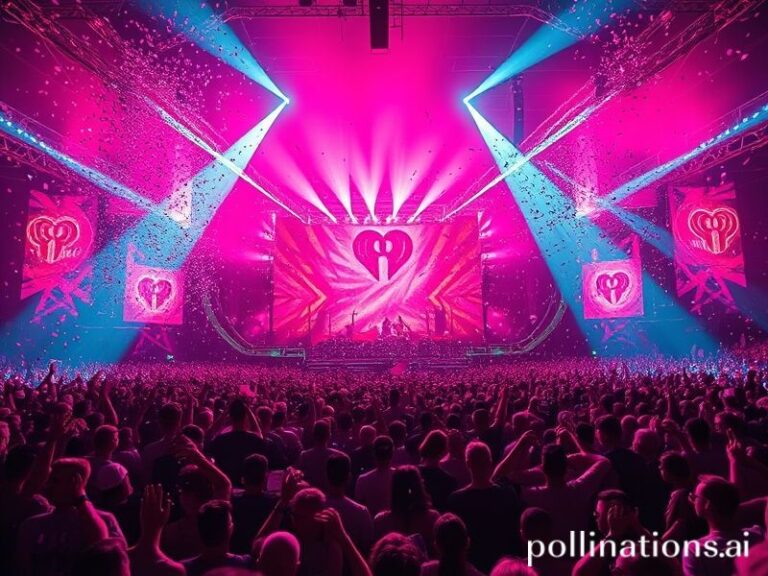Coventry vs Birmingham: How a Very British Feud Explains the Planet’s Talent for Ruining Itself
Coventry vs Birmingham: A Tale of Two Midlands That Explains the World’s Endless Capacity for Self-Inflicted Misery
By the time you read this, the average reader in Jakarta or São Paulo will have already scrolled past a headline about “Coventry vs Birmingham” and wondered why anyone outside the M6 should care. That, dear jet-lagged friend, is precisely the point. From the vantage of a hotel bar in Singapore—where the ice cubes cost more than the gin—the Coventry-Birmingham rivalry looks less like a local football squabble and more like a micro-drama of our entire civilizational death spiral: equal parts nostalgia, delusion, and the stubborn belief that choosing the right postcode will somehow postpone the apocalypse.
Let’s begin with the numbers, because nothing says “global significance” like a spreadsheet nobody asked for. Birmingham, population 1.14 million, styles itself “the UK’s second city,” a claim roughly as accurate as calling TikTok “educational.” Coventry, meanwhile, limps in at 345,000 souls and a cathedral famously destroyed by the Luftwaffe, then rebuilt in brutalist concrete—architectural shorthand for “we’ve seen worse.” Both cities sit in the West Midlands, a region whose greatest cultural export remains the phrase “it’s grim up north,” even though it’s technically in the middle. This is the first cosmic joke: geography so confused it can’t even locate its own despair.
Internationally, the rivalry is a case study in how humans weaponize trivial differences to avoid confronting actual problems. Coventry still nurses a grudge over losing its car industry to Birmingham’s superior lobbying—because nothing screams wounded pride like blaming the neighbor for your inability to sell Austins to the Germans. Birmingham, for its part, treats Coventry the way New York treats Newark: polite disdain wrapped in a thin membrane of guilt. The dynamic travels well. Swap “car factories” for “port access” and you’ve got Mombasa vs Nairobi; swap “football derby” for “water rights” and you’ve got Egypt vs Ethiopia. Local neuroses, planetary pattern.
Economically, both cities are testbeds for the post-industrial experiment nobody consented to. Coventry pivoted to “advanced manufacturing” (read: robots building bits of drones that will eventually bomb someone else’s post-industrial city). Birmingham went all in on finance and conferences—because nothing revives a fallen workshop of the world quite like PowerPoint. The resulting skyline is a museum of broken promises: glass towers named after banks that no longer exist, ring roads that double as hamster wheels for the ambitious and the damned. If you squint, you can see the same blueprint in Detroit, Dortmund, or any Chinese ghost city where the cranes stopped mid-erection once the money ran out.
Culturally, the rivalry is fought on the battlefield of football and music, those two great opiates of the provincial. Coventry City’s 1987 FA Cup victory still gets trotted out like a faded war medal—proof that miracles happen, just not twice. Birmingham counters with Black Sabbath and Duran Duran, bands that taught the planet how to be simultaneously glamorous and miserable, a neat trick later perfected by Instagram. UNESCO recently crowned Coventry “UK City of Culture 2021,” an honor akin to being named “least flammable tinderbox.” The ceremony was held, of course, on Zoom, because nothing says cultural renaissance like buffering.
And yet, for all the mutual eye-rolling, the two cities share the same existential dread. Brexit sliced their EU funding like a dodgy kebab; austerity trimmed what was left. The young leave for London or Lisbon, sending back remittances and artisanal gin. The old stay, voting for whoever promises to bring back The Good Old Days, a period roughly spanning 1956 to the morning of 7 July 2005. Meanwhile, the planet warms, the supply chains snap, and both cities install “smart” traffic lights that still turn red at 3 a.m. for nonexistent tractors.
So why should the world care? Because Coventry vs Birmingham is the perfect fractal of our age: two siblings arguing over the inheritance while the house burns. Their squabble scales up to nations, trade blocs, and Twitter itself—everyone convinced the other lot are holding them back from the prosperity that is, of course, just one more rebranding exercise away. The tragedy is not that they hate each other; it’s that they believe the difference matters. In the end, the only winner is entropy, and even it’s started charging congestion fees.







